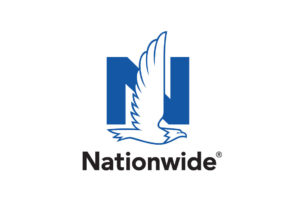
Nationwide to close some offices, have staff work remotely permanently
By onAnnouncements | Business Practices | Insurance | Market Trends
Nationwide last week announced it would let the whole working-from-home thing ride beyond the COVID-19 coronavirus pandemic to become a permanent business strategy.
The carrier on April 29 said it would “exit most buildings” and have the associated employees work remotely for good as of Nov. 1. This initiative will include the closure of Nationwide facilities in Gainesville, Fla.; Harleysville, Penn.; Raleigh, N.C.; Richmond, Va.; and Wausau, Wis.
“We’ve been investing in our technological capabilities for years, and those investments really paid off when we needed to transition quickly to a 98 percent work-from-home model,” Nationwide CEO Kirt Walker said in a statement. “Our associates and our technology team have proven to us that we can serve our members and partners with extraordinary care with a large portion of our team working from home.”
Employee behavior during the ongoing COVID-19 response provided such proof, according to Nationwide.
“Nationwide swiftly moved to a work-from-home posture in mid-March to preserve associate health and well-being and with the intent of flattening the COVID-19 curve,” the carrier wrote. “The company has maintained strong operational and customer service levels throughout that time.”
Asked about the impact on auto claims staff and supervisors, corporate communications Associate Vice President Joe Case said much of that team already worked remotely.
“There will be no impact to service levels,” Case wrote in an email Wednesday. “Many of these staff members already work from home and leverage technology to support our customers.”
(In that vein, Walker on April 29 wrote that Nationwide’s reaction to the COVID-19 issue included having “expanded our ability to handle and settle claims virtually.”)
Nationwide said it will continue to staff significant campuses in downtown Columbus and Grandview Yard, Ohio; Scottsdale, Ariz.; Des Moines, Iowa; and San Antonio, Texas. It chose these four locations using a thought process that focused on existing staff concentrations, time zone flexibility, and “ongoing access to associate talent and subject matter expertise.”
Nationwide will also keep its Brea, Calif. pet insurance presence; New York City management liability and specialty business headquarters; and Louisville, Ky., annuity distribution site.
“Exceptions may also include smaller offices and locations that are required by state plans or business need to have an office location to service members,” it wrote.
Dumping fixed costs like real estate and utilities could permit Nationwide to undercut other carriers on premium price or give the carrier breathing room during rising severity.
“Our goal is to ensure that when a recovery comes, we’re prepared to win business with competitively priced solutions while enhancing our resiliency and operational efficiency,” Walker said in a statement. “We’re technology-enabled, people-connected and mission-driven. I remain extremely optimistic about our future.”
The decision by a Top 10 carrier also leads one to wonder which other major employers in insurance and other industries would follow suit. If so, would consumer traffic fall by a significant enough degree to affect crash frequency?
For example, CCC last month said miles driven fell 3.9 percent in August 2008, the biggest year-over-year decline during last decade’s recession.
Unemployment in August 2008 sat at 6.1 percent with 9.4 million people out of work compared to 4.7 percent and 7.2 million people in August 2007. If those 2.2 million had kept their jobs but worked at home, how close to that 3.9 percent drop in miles driven would we see? What would this mean for frequency?
“Auto claim frequency during and after the Great Recession saw a steep decline,” CCC director and analyst Susanna Gotsch wrote in April, citing ISS Fast Track Plus data. “The number of claims per 100 insured vehicles for collision and liability coverages combined was 4.79 for the rolling four quarters ending Q1 2008 and fell nearly 12 percent to 4.22 claims per 100 insured vehicles for the rolling four quarters ending Q3 2008.9 Collision claim coverage alone fell nearly 16 percent from 6.29 claims per 100 insured vehicles for the four quarters ending Q1 2008 to a low of 5.3 claims per 100 insured vehicles for the four quarters ending Q2 2011. Independently liability claims experienced a nearly 10 percentage decline during that same period.”
According to Gotsch, Insurance Information Institute, American Property Casualty Insurance Association and Society of Actuaries, College of Actuaries research has shown “collision frequency in the United States is strongly and positively related to various measures of congestion.”
More information:
“Nationwide announces permanent shift in workplace, work-from-home strategy”
Nationwide, April 29, 2020
“How Claim and Accident Frequency May Be Impacted by COVID-19”
CCC, April 4, 2020
“Shelter at Home – Impact of COVID-19 on Auto Accident Frequency”
CCC, April 7, 2020
Featured image: The Nationwide logo. (Provided by Nationwide via PRNewsfoto)
